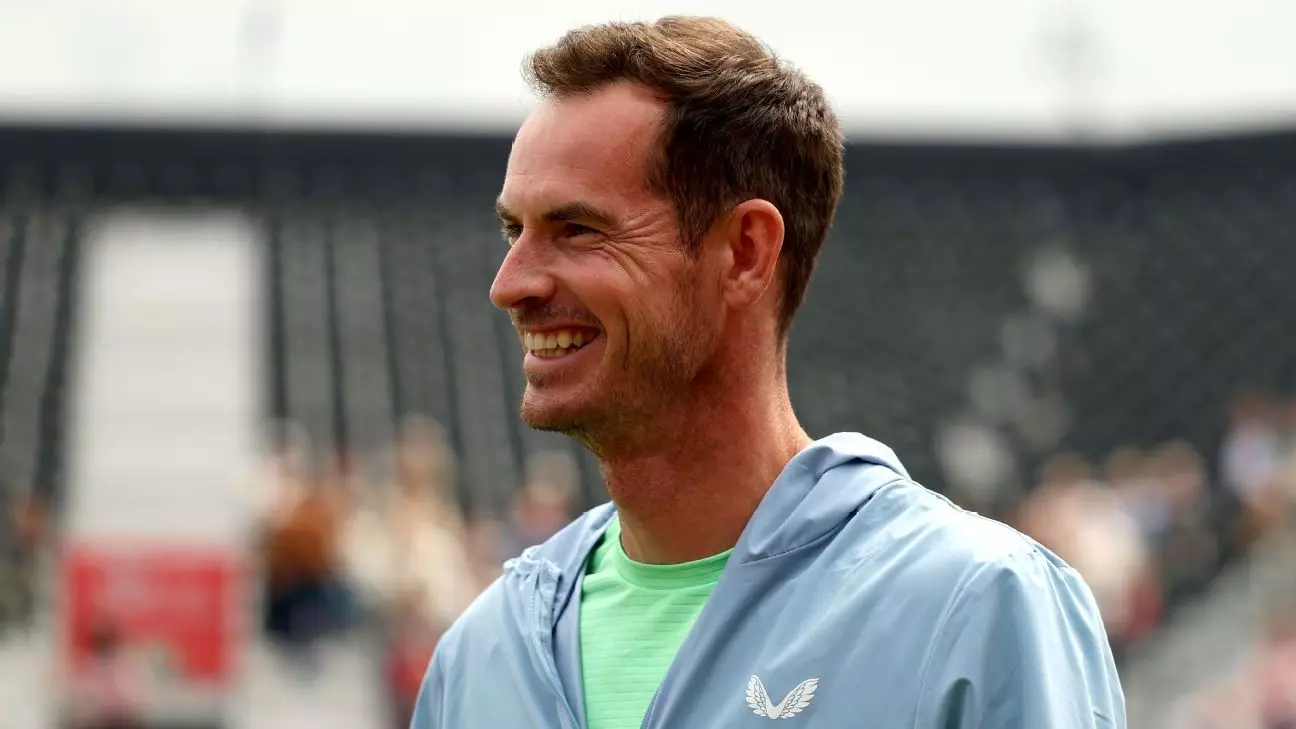After a distinguished career that solidified him as one of tennis’s greats, Andy Murray is at an intriguing crossroads following his recent foray into coaching. His brief partnership with the legendary Novak Djokovic, which came to a close mere months after its inception, provides a unique perspective on the challenges and unexpected discoveries that accompany life beyond competitive play. While Murray initially intended to focus on moving away from the sport post-retirement, his experiences have planted the idea that he might find himself back in a coaching role down the line.
The Allure of Coaching
Murray’s reflections highlight a natural curiosity about coaching that many athletes experience after retirement. “I would do it again at some stage,” he noted in a conversation with the BBC, emphasizing that he sees value in mentorship. The insights gained from working alongside Djokovic, whom he referred to as one of the all-time greats, are likely hard to undervalue. Coaching offers a chance to pass on a wealth of knowledge accumulated over years at the top level of competitive tennis, which could greatly benefit the next generation of players.
By traversing the ups and downs of coaching, Murray not only cultivates new skills but could also enrich the sport he loves. The experience was illuminating, despite the results not meeting high expectations. “We gave it a go,” he said, clearly recognizing that the essence of coaching is about more than wins and losses; it’s about the relationships built and lessons learned.
Golf vs. Tennis: A Temporary Escape
Since stepping away from the hard courts, Murray has found solace on the golf course. His playful acknowledgment of his dwindling tennis skills during a recent event underscores a humor that resonates with many sportsmen transitioning from competition to leisure activities. “My tennis is diabolical,” he confessed with a twinkle in his eye, a sentiment any recreational player could empathize with.
This shift in focus to golf may very well serve as a means for Murray to recharge, allowing him to step back from the pressures of professional sport. However, the nostalgia for the thrill of competition is unmistakable; he’s keenly aware of what he’s missing. “I’ve obviously missed being out here,” he lamented during a light-hearted doubles rally, hinting that while golf provides an escape, the true passion for tennis lingers just beneath the surface.
Anticipation for Future Endeavors
Murray’s reflections indicate that he is not turning his back on tennis completely. There exists a spark of excitement surrounding the possibility of coaching, representing a blend of nostalgia and newfound purpose. As one of the most iconic figures in tennis history, his return to the sport in any capacity—be it as a coach or mentor—could inspire countless aspiring athletes.
In fact, one can argue that Murray’s reentry into coaching could mark a significant moment not only for his personal journey but for the evolution of tennis itself. While immediate plans for a coaching comeback seem unlikely, his openness to the idea illustrates a broader theme in sports: the cyclical nature of legacy and learning, whereby legends eventually become mentors, ensuring their knowledge and experiences are passed on for generations to come. Murray’s journey is far from over; it may merely be beginning anew in an unexpected role.

